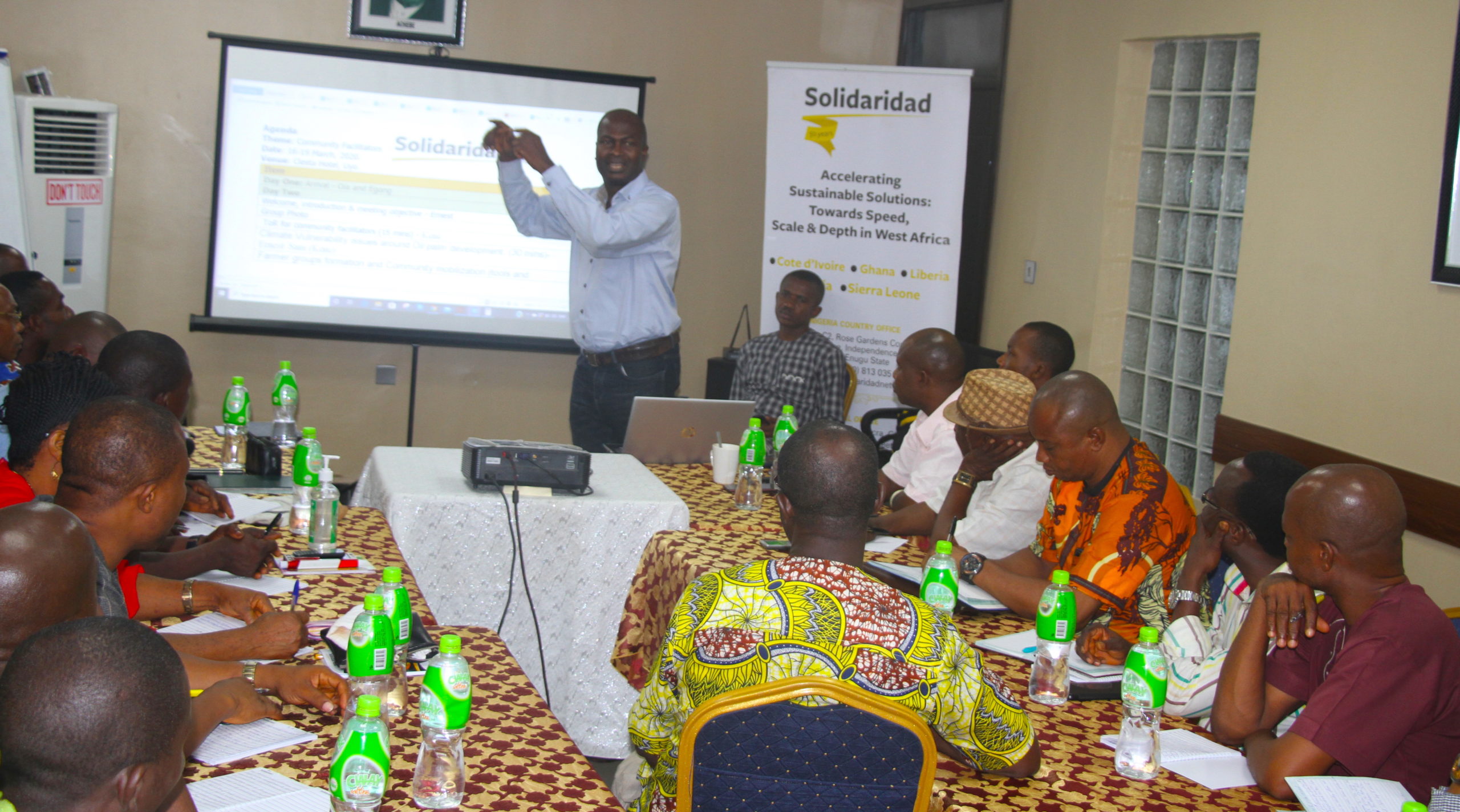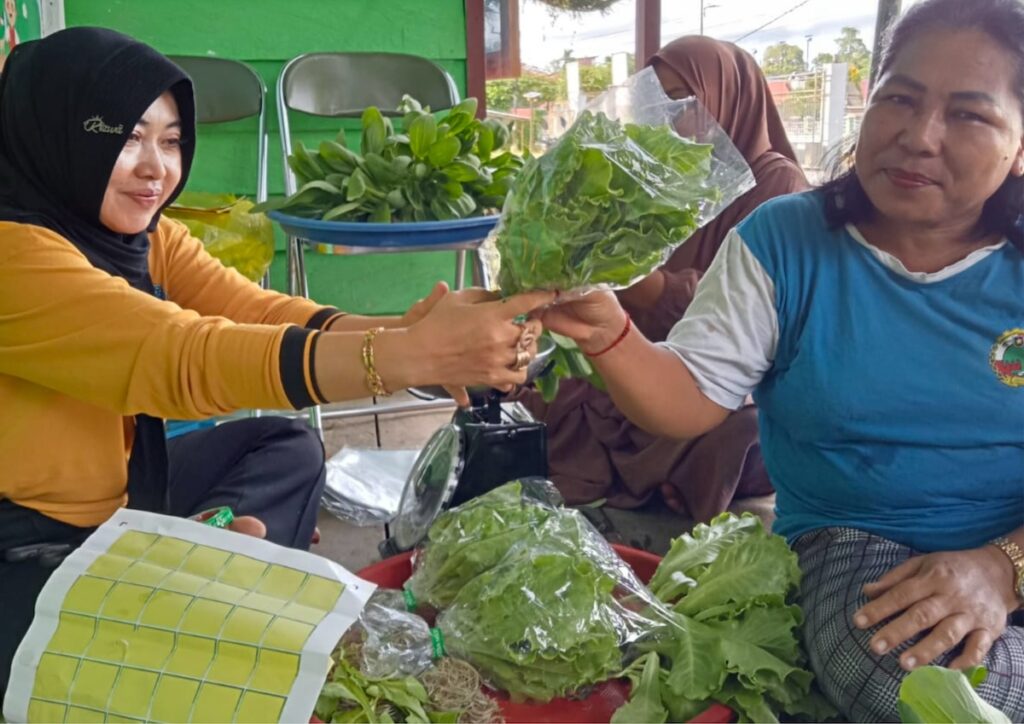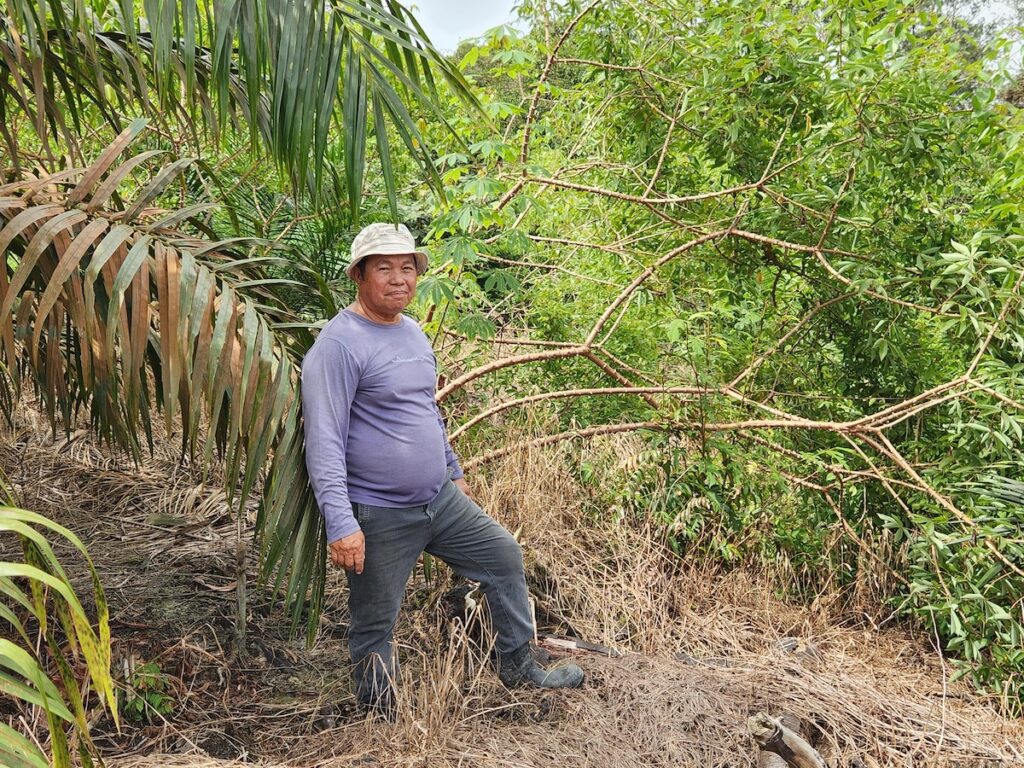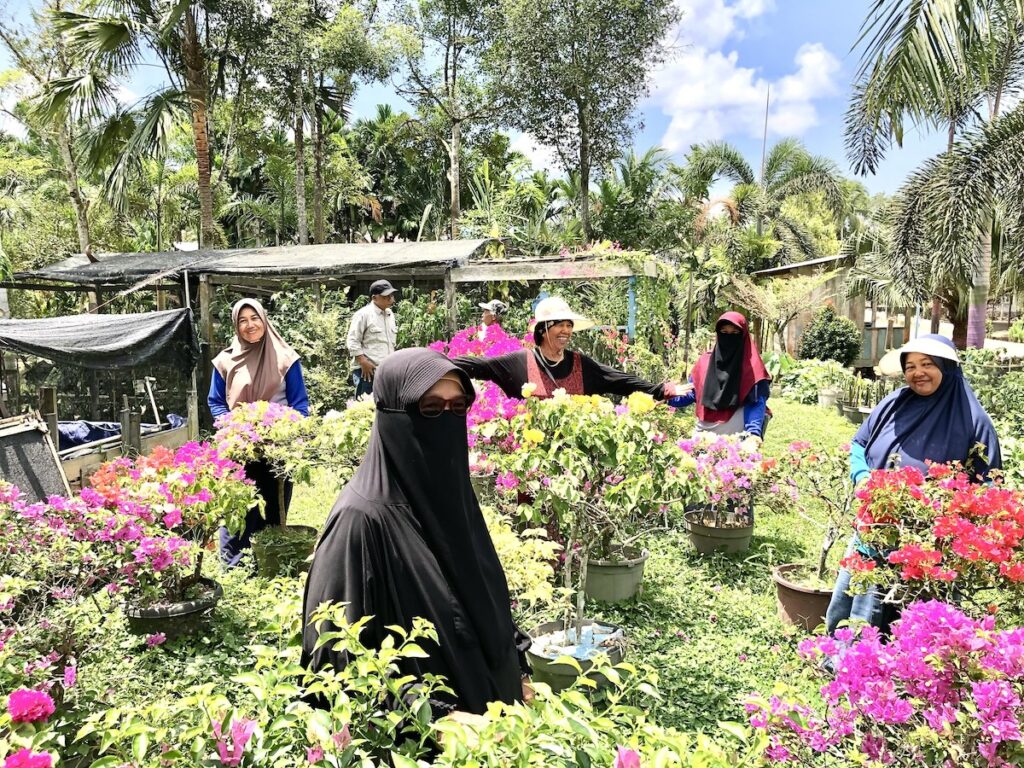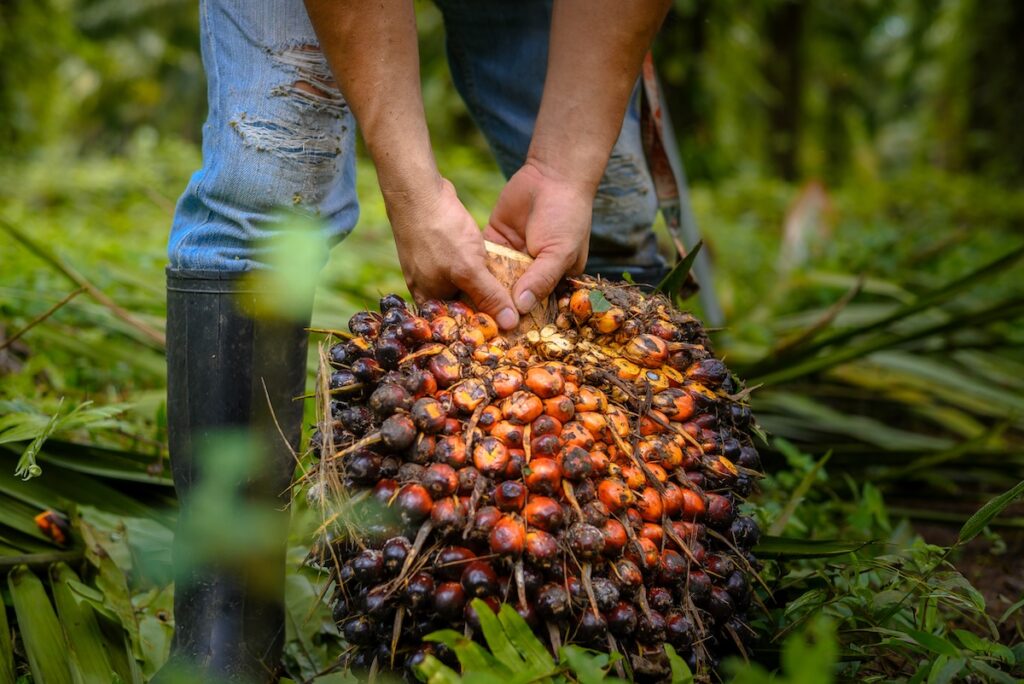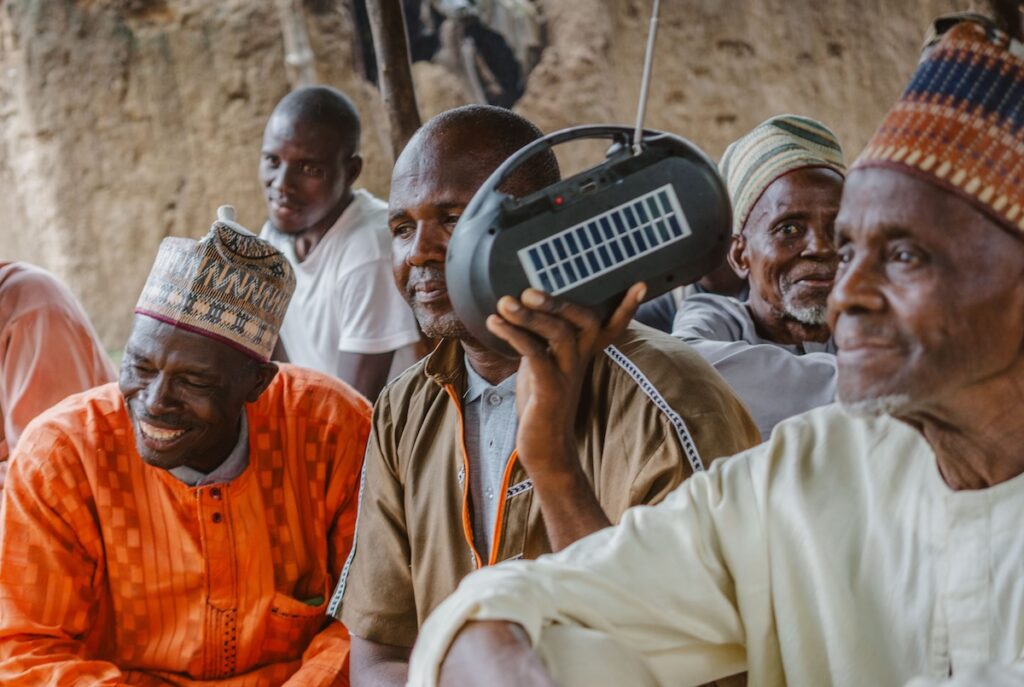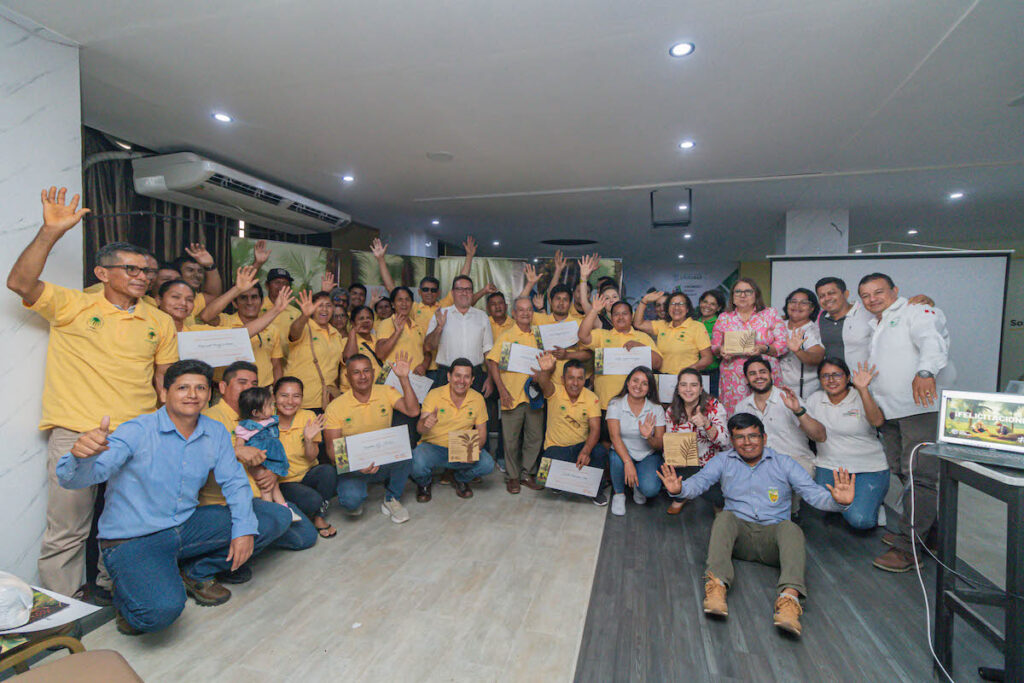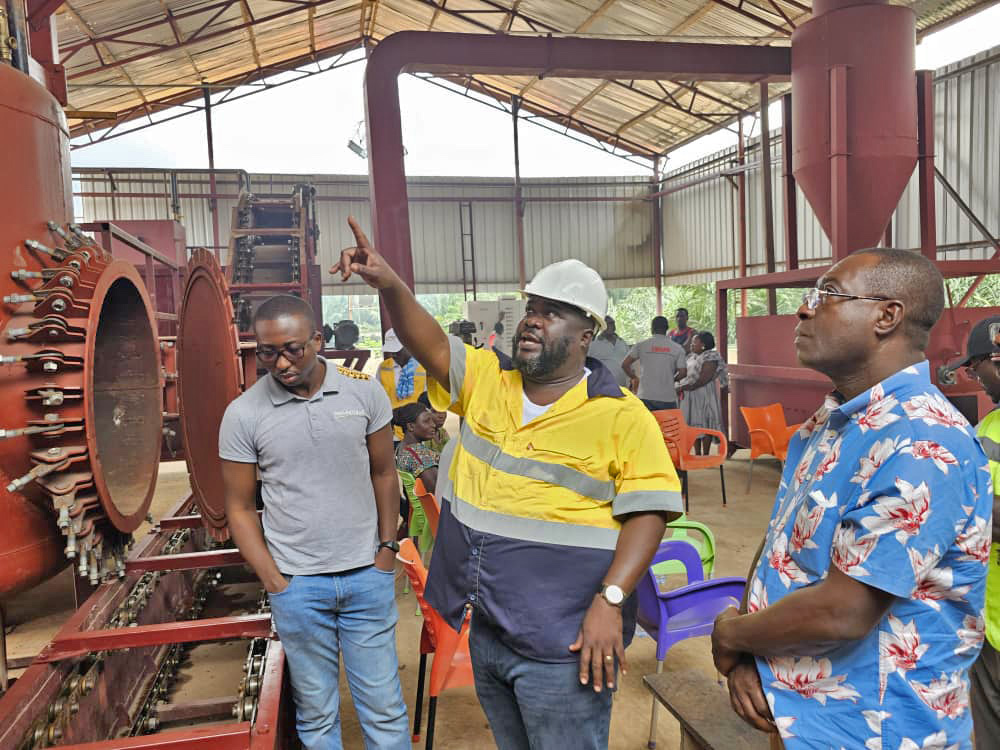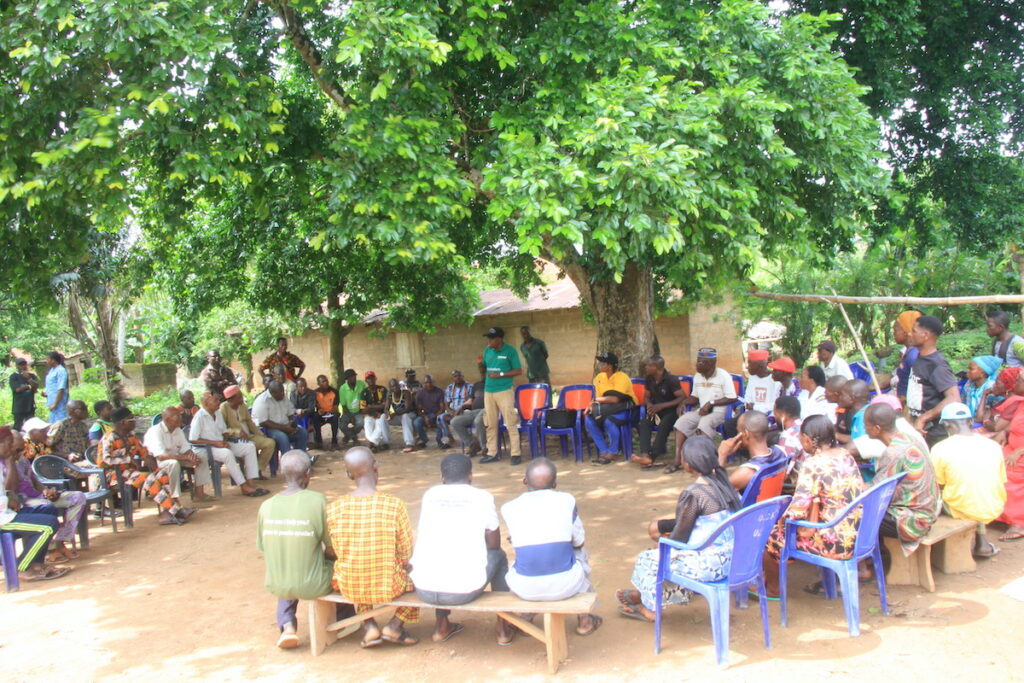Nigeria is yet to attain its full potential in oil palm production due partly to the lack of effective policies that propel both government and the private sector to participate in project financing, innovations and investments in the sector.
“Most of the palm oil production activities from cultivation to harvesting, processing, and marketing are done through the efforts of individual smallholder oil palm farmers with little or no support from the government. The policies that should provide the enabling environment for productivity along with the oil palm supply chains are just not there,” says Udeme Bassey, an oil palm farmer in Nigeria.
Smallholder oil palm farmers contribute about 80 percent of the country’s oil palm production but mostly operate individually with limited resources to improve their production.
With strong smallholder capacity rooted in farmer groups or cooperatives in place, advocacy for the right sector policies could be pursued to address the challenges emanating from the limited use of appropriate technology, poor management practices and low investment.
Encouraging the formation of cooperatives for advocacy
Under the National Initiatives for Sustainable and Climate-Smart Oil Palm Smallholders (NISCOPS), Solidaridad has supported oil palm farmers in the Akwa Ibom, Cross River, Enugu, and Kogi states of Nigeria – where the programme is implemented – to form groups and cooperatives that would give them a unifying voice to advocate favourable policies for the oil palm sector.
The support was guided by lessons Solidaridad learned while implementing a previous oil palm programme, the Roundtable on Sustainable Palm Oil Support Fund (RSSF) Extension Programme, funded by Henkel.
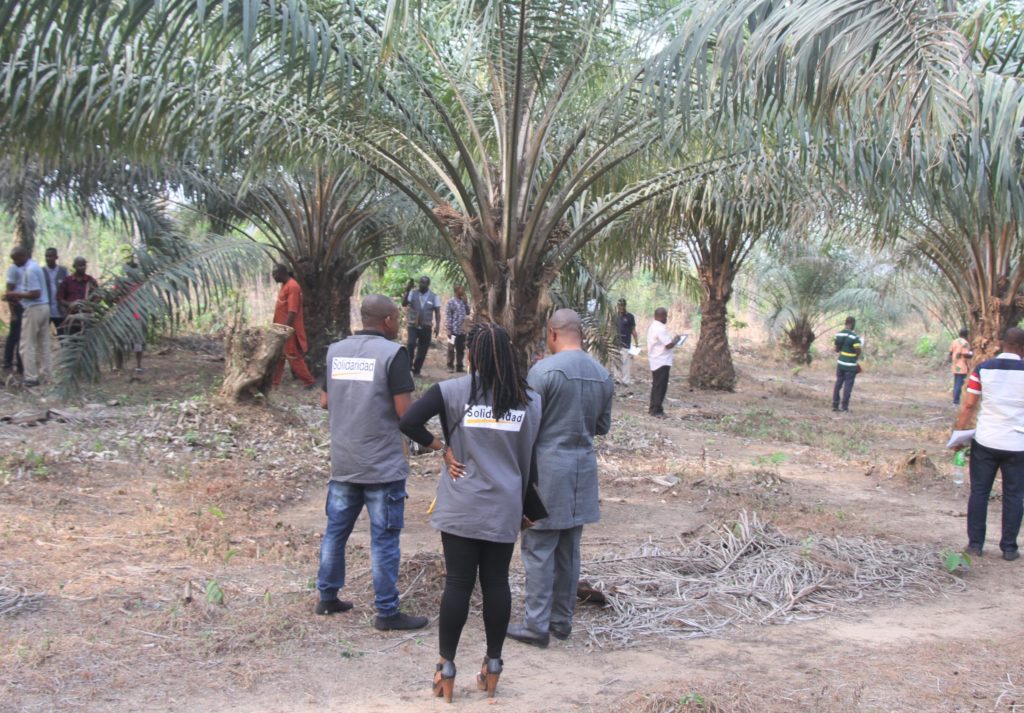
Bridging the knowledge gap among oil palm farmers
Solidaridad is bridging the knowledge gap by deploying trained community facilitators to rural communities.
One of such groups initiated by Solidaridad under the programme was the Oil Palm Plantation Owners Multi-Purpose Cooperative, an umbrella body made up of smallholder oil palm farmer groups.
Under NISCOPS, Solidaridad is providing additional support to the cooperative through capacity building seminars focused on policy advocacy to bring attention to the needed sector transformation. This is besides training in best management practices, sustainable land use, and climate-smart agriculture that members receive.
Advocating for change
With this support, the cooperative has been organizing an annual oil palm summit since 2018. The event brings together oil palm stakeholders from the 33 local government areas of Akwa Ibom state, including government officials from the state ministry of agriculture, members of the national and state assembly, heads of agriculture-related parastatals, and private investors to discuss the oil palm sector and its future.
“Through the summit, we have been able to draw the government’s attention to the challenges in the sector,” says Udeme Bassey, president of the Oil Palm Plantation Owners Multi-Purpose Cooperative.
Through the group’s initiative and its advocacy, the government is now working with farmer groups and other stakeholders to establish policies that will enhance the growth of the sector.
Additionally, the government is now providing smallholder oil palm farmers with improved seedlings, as well as farm inputs at affordable prices from government agencies.
Solidaridad committed to building the capacity of farmer groups
Egong Owai, the Solidaridad field agronomist in Nigeria, said Solidaridad will continue to build the capacity of farmer groups to operate as cooperatives to continue advocating for change.
It is exciting that smallholder oil palm farmers are now aware that their voices could be stronger as a group in demanding government actions in the sector’s development.
Engong owai, Solidaridad field Agronomist in nigeria
The National Initiatives for Sustainable and Climate-Smart Oil Palm Smallholders (NISCOPS) programme seeks to contribute to the attainment of self-sufficiency in palm oil production, through climate-smart agriculture practices and sustainable intensification of farms and improving smallholders’ productivity and livelihood. It is funded by the Dutch government.

